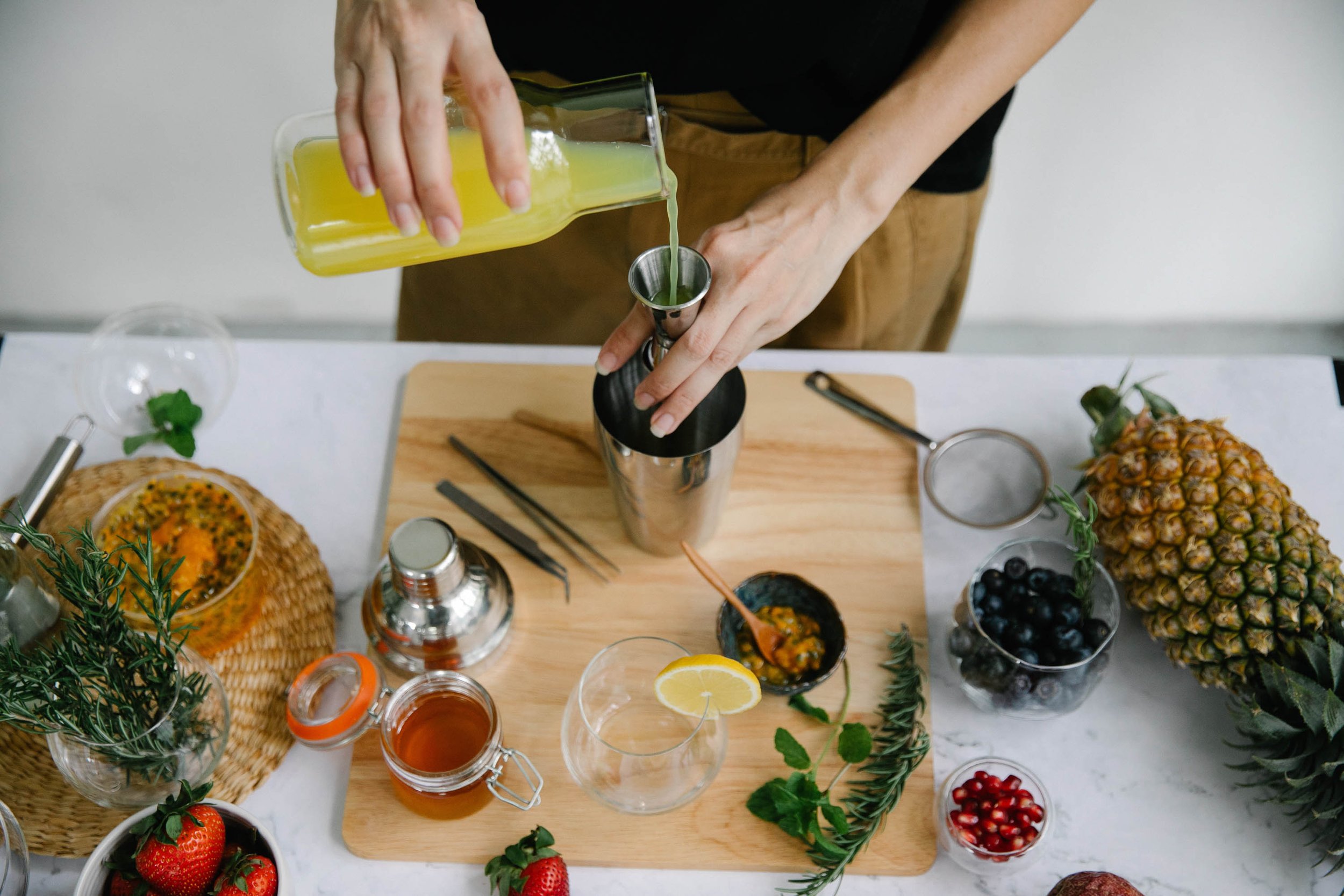
Given the right nutrients, the body knows how to heal
We go beyond the surface by why looking at the WHY behind your symptoms - both physical and emotional.
By observing patterns in your body and mind, we uncover what your sysytem maybe lacking nutritionally, helping you support healing at the root.
Back to health
how WE get you there
By understanding what foods provide which set of nutrients, we can get you back to health.
diet analysis
We will go through your current diet and I will teach you what foods are causing your symptoms and which foods and supplements can eradicate them.
nutritional scans
Using Biofeedback’s nutritional scans we can discover which nutrients are out of balance for you. As we are all unique. I then help you adjust your diet accordingly. Learn the right ratio of proteins, vitamins, minerals, amino acids carbohydrates and fats for your body.
allergy scans
Using Biofeedback’s Allergy scans you will discover your main trigger foods to avoid. By decreasing or eliminating specific food groups and increasing others you begin on the journey of gut healing.
detoxing for absorption
Learn the important axis of effective elimination through regular detoxing boosting your metabolism for gut healing and to increase absorption.
Getting you back to health naturally.
Bespoke for you
Whether you are vegan, vegetarian, gluten or dairy free, Laura works specifically with your requirements.
Laura's extensive nutritional knowledge, experience and Biofeedback machine she helps you get to the root cause of your symptoms and restore your body back to full health.
Common Symptoms & Health Concerns I Support
Not sure if Nutritional Therapy is right for you? Below are some of the most common symptoms I help clients address. If your concern isn’t listed, feel free to get in touch — I may still be able to help.
Chronic Pain & Inflammation
Identify nutritional contributors to persistent pain and inflammation.
Headaches or migraines
Fibromyalgia or muscle sensitivity
Joint pain or stiffness
Skin issues like eczema, acne, or rashes
Cognitive & Emotional Wellbeing
Support brain health, focus, and mood stability through nutrition and nervous system support.
Low mood, emotional flatness, or irritability
Anxiety, racing thoughts, or restlessness
Brain fog or difficulty concentrating
Feeling “wired but tired”
Overwhelm or poor stress tolerance
Detoxification & Environmental Load
Support your body’s natural detox pathways and reduce the toxic load.
Sensitivity to smells, perfumes, or cleaning products
Skin issues like congestion, rashes, or acne
Headaches triggered by food, alcohol, or scents
Fatigue or brain fog after chemical or alcohol exposure
Sluggish digestion, poor liver clearance, or fluid retention
Digestive & Immune Support
Restore gut function and support immune balance with tailored nutrition and protocols.
Bloating, IBS, reflux, constipation, or diarrhea
Food sensitivities or intolerances
Low immunity, frequent infections, post-viral fatigue
Candida, parasites, or microbiome imbalance
Histamine intolerance or reactivity
Fatigue & Burnout
Support energy metabolism and recovery from chronic stress or depletion.
Morning fatigue or afternoon crashes
Adrenal fatigue or burnout
Long-term tiredness after illness (e.g., long COVID)
Difficulty bouncing back from physical or emotional stress
Over-reliance on caffeine or sugar for energy
Hormonal & Reproductive Health
Balance hormones naturally to support cycle health, fertility, and transitions like perimenopause.
Irregular or painful periods, PMS
Fertility or preconception support
Perimenopause or menopause symptoms (hot flashes, low libido)
Cortisol or adrenal imbalance
Metabolism & Weight
Address underlying metabolic imbalances for sustainable weight and energy regulation.
Unexplained weight gain or resistance to weight loss
Nutrient deficiencies (vitamins, minerals, amino acids)
Blood sugar crashes or instability
Cravings and appetite dysregulation
Sleep & Restoration
Improve sleep quality by addressing biochemical imbalances and stress-related sleep disruption.
Trouble falling or staying asleep
Restless or non-refreshing sleep
Night waking due to cortisol imbalance
Poor sleep linked to anxiety or hormonal shifts
Sleep disruption during perimenopause or stress recovery
Systemic Imbalance & Dysregulation
Address complex, multi-system symptoms that stem from nervous system overload, immune confusion, or endocrine disruption — especially when conventional tests come back “normal.”
Nervous system dysregulation: feeling stuck in fight, flight, or freeze
Autoimmune-related flare-ups or unexplained inflammation
Histamine or mast cell sensitivity
Mixed, shifting symptoms with no clear diagnosis
Feeling out of balance, disconnected, or “off” in your body
Nutritional Therapy FAQ’s
-
The number of sessions can vary depending on how long you’ve been experiencing your current symptoms and the complexity of your case. For chronic or long-standing issues, we typically recommend a course of 6-8 to allow for meaningful and sustained progress.
Everyone’s healing journey is different, and we’ll tailor your plan based on your individual needs and how your body responds over time.
-
When you join a programme, you’ll receive ongoing support to help you stay on track and get the most out of your sessions. This includes:
Weekly scans to monitor vitamins, minerals, and amino acids
Recipe inspiration and meal prep guidance in accordance with your preferences, allergens and scans
A PDF guide to foods to avoid and those to prioritise
Personalised resource suggestions (apps, books, podcasts)
Food diary templates to help track patterns
WhatsApp support between sessions for any questions or challenges that come up
-
Not at all — the goal is to help you build a way of eating that fits naturally into your lifestyle, including meals out.
After completing the 6-week programme (and assuming you’re feeling well and symptom-free), I usually recommend following the 80/20 approach: eat clean, nourishing foods 80% of the time, and enjoy more flexibility the other 20%.
I’m not a purist — my focus is on teaching you how different foods affect your body, so you can make informed choices and feel empowered to maintain your health long after our work together ends.
-
If you taking any medication or supplements, please bring them along to your initial session for Laura to check.
Ready to feel like yourself again?





